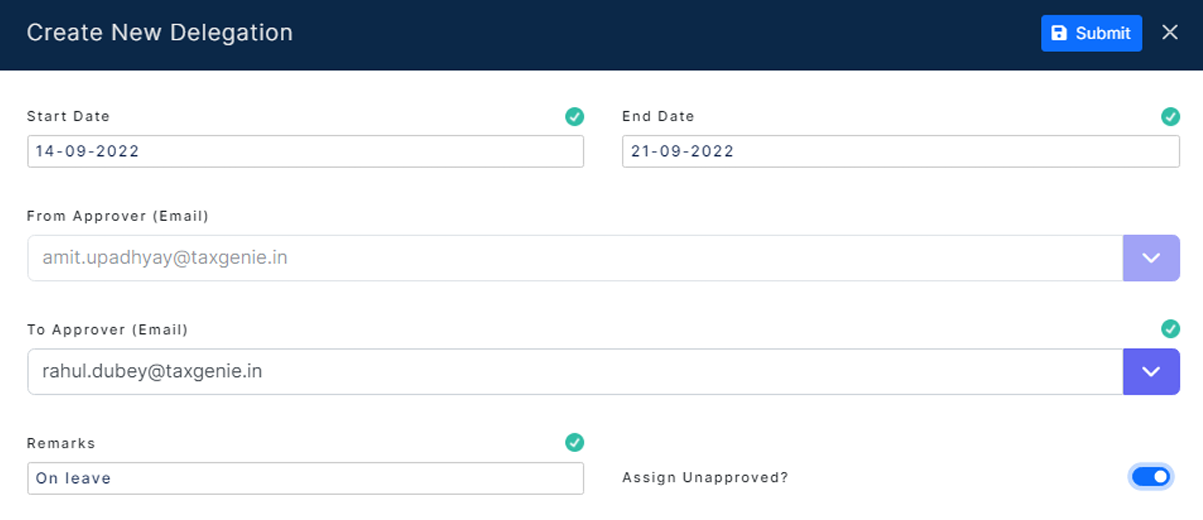Delegation Management in PayExpense
- Landing Page: This section provides an overview of all delegations previously set up by the employee. It might display details like:
- Delegate Name(s)
- Delegation Period (Start and End Dates)
- Status (Active/Inactive)
- New Delegation Creation: Employees might be able to initiate new delegations by clicking a "+" button, typically found on the landing page. This could involve specifying:
- Delegate(s): Selecting colleagues who will have access to expense report approvals or other functionalities on their behalf during the delegation period.
- Delegation Period: Defining the start and end dates for which the delegation is valid.
- Remarks (Optional): Providing a brief explanation or reason for delegating tasks (e.g., vacation, business trip).
- Ending Delegation: The system might offer an option to terminate an existing delegation before the designated end date, potentially by clicking a dedicated "End Delegation" button.
Assigning Unapproved Claims (Optional):
- Transferring Existing Claims: Some PayExpense versions might allow selecting an "Assign Unapproved" option during delegation setup. This determines whether to transfer:
- Selected: Only new expense reports submitted after the delegation start date will be directed to the assigned delegate(s).
- All Unapproved: All pending expense reports (including those submitted before the delegation) will be transferred to the new delegate(s) for review and approval.
Benefits of Delegation:
- Maintaining Continuity: Delegation ensures someone can handle expense approvals or other assigned tasks while the employee is unavailable.
- Improved Efficiency: Delegation helps distribute workload and prevents bottlenecks in the expense approval process during employee absences.
- Increased Accountability: The ability to delegate tasks promotes accountability, as both the delegator and delegate are responsible for ensuring proper expense management practices.
Additional Considerations:
- Delegate Permissions: It's crucial to understand the specific permissions granted to delegates based on your PayExpense configuration.
- Communication: Effective communication between the employee and delegate is essential to ensure a smooth handover of responsibilities during the delegation period.
By effectively utilizing the Delegation functionality within PayExpense, organizations can ensure a more resilient and adaptable expense management process, even during employee absences.



No Comments